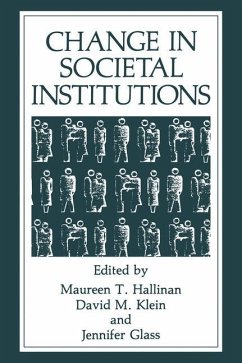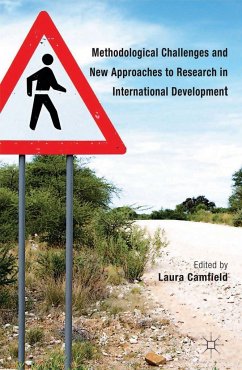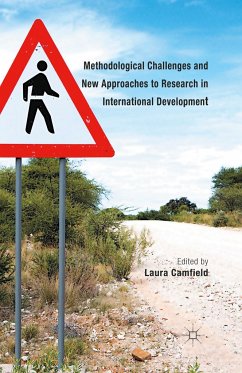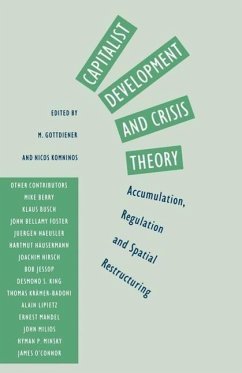
Autopoiesis and Configuration Theory: New Approaches to Societal Steering

PAYBACK Punkte
57 °P sammeln!
I Introduction.- 1. Autopoiesis, configuration and steering: impossibility theorem or dynamic steering theory.- 2. Introduction to configuration approach: a process theory for societal steering.- 3. Introduction to autopoiesis theory and autopoietic steering.- II Configuration Theory.- 4. Some notions on social integration and steering.- 5. Offering new possibilities of organizing in social situations: towards a posture of decentering and centering.- 6. Managing of social cognitive configurations in a multiple context.- 7. Knowledge, reification and organization; some critical comments.- 8. Th...
I Introduction.- 1. Autopoiesis, configuration and steering: impossibility theorem or dynamic steering theory.- 2. Introduction to configuration approach: a process theory for societal steering.- 3. Introduction to autopoiesis theory and autopoietic steering.- II Configuration Theory.- 4. Some notions on social integration and steering.- 5. Offering new possibilities of organizing in social situations: towards a posture of decentering and centering.- 6. Managing of social cognitive configurations in a multiple context.- 7. Knowledge, reification and organization; some critical comments.- 8. The feasibility of developing a political steering theory based on process-oriented configuration theories.- 9. Effective policy making in a multi-actor setting: networks and steering.- 10. Consistency, configuration, closure and change.- III. Autopoiesis Theory.- 11. Autopoieses and steering: how politics profit from the normative surplus of capital.- 12. Environmental mediation: an example of applied autopoiesis?.- 13. Autopoiesis and steering: the role of identity.- 14. Policy instruments for steering autopoietic actors.- 15. Autopoiesis, learning and governmental steering.- 16. Communication and steering: what the science of public administration could learn from Habermas and Luhmann.- 17. Applicability of autopoiesis to administration science.- 18. Simulation: learning environments for (self-)steering in social systems.- IV. Conference Impressions.- 19. A stranger in paradise? Autopoiesis, configuration and societal steering.- Authors Index.- About the Authors.














